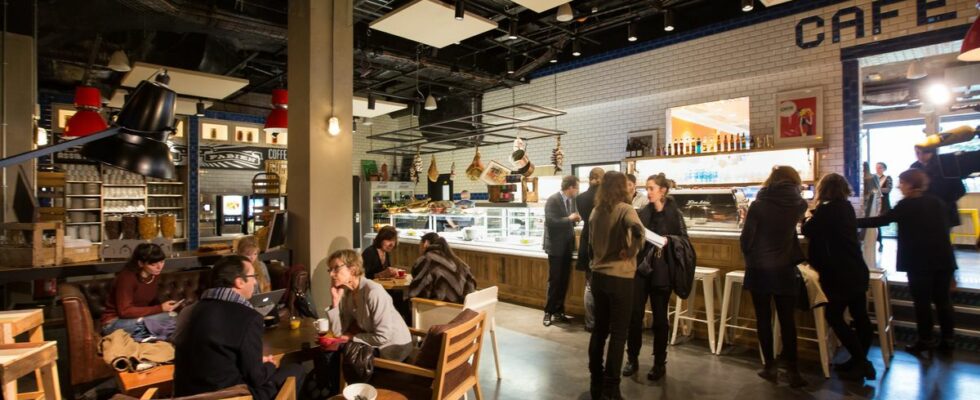For those who traveled abroad young (or not), it’s hard not to have gone through a youth hostel. Or rather “hostel”, as it is said in English and “Globish”, this language of the international travel (among others). In France, the sector of activity traditionally occupied by associations and heir to the Popular Front years and the first paid holidays, is currently experiencing keen interest from private players who intend to dust off the model.
To believe that these collective accommodations, cheap, reputed to be friendly, were sorely lacking in the country welcoming the most tourists in the world. An observation made by Guilhem, a 28-year-old Marseillais currently seeking to raise funds to open his inn in town. “I’ve just come back from six months in Porto, where I worked in a hostel to try my hand. Over there, there are 30 whereas in Marseille there are only three hostels”, calculated the young entrepreneur. If he struggles between crowdfunding and business model for a bank to follow him, groups with unparalleled financial power have gotten into the vein. Like the hotelier Grape Hospitality which launched its chain The People Hostel (one of which has just opened in Marseille) or Accor which via its subsidiary Jo & Joe is bursting into the market.
Instagrammer, urban, party animal, the holy trinity
“It started from the reflection that there was a population, the millennial generation, which was perhaps missing out on our market”, introduces François Leclerc, director of the brand. An Instagram generation, who likes its comfort, party girl, urban. With six establishments created in three years, including two in Paris and one in Hossegor (plus Rio, Medellín, Vienna) and three openings in 2023, the group designs hostels in an urban, post-industrial style, with careful design and decoration.
“We duplicated the concept of youth hostels by adapting. We also offer single rooms, our dormitories have four, six, eight beds at the most with a bathroom in each of them and a changing room”. But above all the change in economic paradigm, with the price of a bed around 40 euros, not pushed to the bottom. Around 35% of the brand’s turnover comes from bars and restaurants. With an opening on the neighborhood. “We do concerts, locals come for the afterworks. The idea is that there is always something going on there and to first make it a place to live,” sums up François Leclerc.
“A need to be filled, and money to be made”
A dusting of the genre that does not worry the historical actors. For David Le Carré, president of the United Federation of Youth Hostels (Fuaj, which represents 80 hostels), they do not pursue “the same objectives. Originally, youth hostels were a political project”.
Deployed in conjunction with municipalities and local authorities, youth hostels in their classic format, heirs to the popular front, work mainly with hikers, associations and schools. “We don’t have the same clientele and the two projects will coexist,” he believes. “But they come to take a place left free by the loss of 60% of collective accommodation between 2013 and 2019”, supports David Le Carré for whom, there was “a need to be filled, and money to be made”.
As the sector of collective accommodation in the 21st century develops under the leadership of the private sector, the legislation is structured. In September 2020, following the Finance Act, the “collective hostels” category was created to apply a specific tourist tax. Since November of this year, these accommodation offers can also require a specific classification in the same way as gîtes and other guest rooms, for example.

